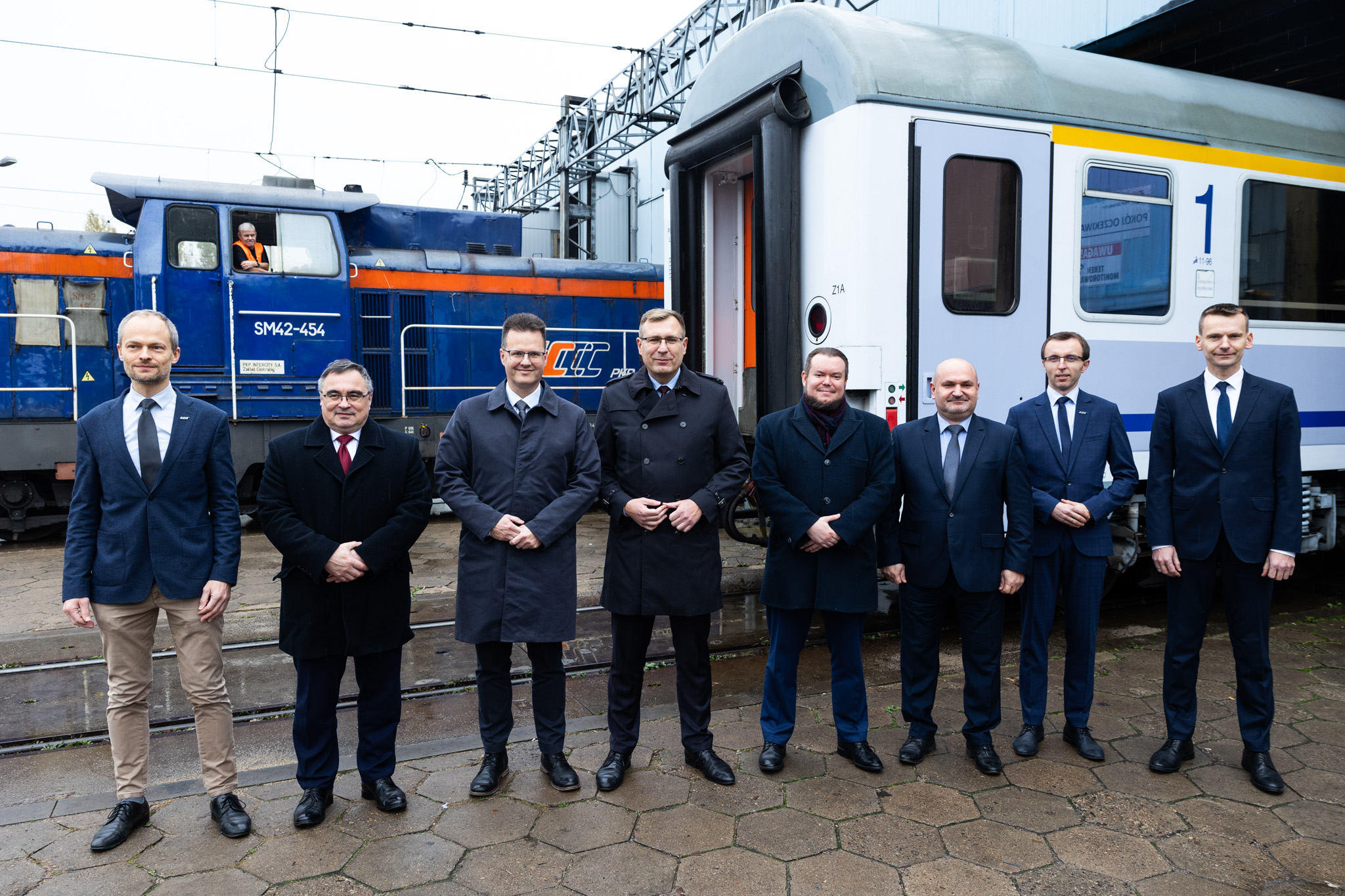 PKP Intercity awarded H. Cegielski Fabryka Pojazdów Szynowych and Pesa Mińsk Mazowiecki two contracts for the modernisation of 40 inter-city coaches. The contracts which have been signed at Olszynka Grochowska station, in Warsaw, have a total value of PLN 270 million (EUR 60.3 million).
PKP Intercity awarded H. Cegielski Fabryka Pojazdów Szynowych and Pesa Mińsk Mazowiecki two contracts for the modernisation of 40 inter-city coaches. The contracts which have been signed at Olszynka Grochowska station, in Warsaw, have a total value of PLN 270 million (EUR 60.3 million).
The tender procedure for the modernisation of 40 inter-city coaches was divided into 3 parts. The best offer for the modernisation of 26 second-class Z1B and 6 Z1B PRM carriages, adapted for passengers with disability, was submitted by the Poznań-based company H. Cegielski Fabryka Pojazdów Szynowych. Pesa Bydgoszcz won the contract for the modernisation of 8 first-class Z1A carriages.
All 40 modernised carriages are to be delivered to PKP Intercity after 36 months from the date of signing the contract.The vehicles will be adapted to travel at speeds of up to 200 km/h, which will not only make it possible to use the carrier’s increasingly modern fleet of locomotives, but also the modernised railway network in Poland.
After the implementation of the contracts, the modernised inter-city coaches will have numerous amenities that will significantly improve the level of passenger comfort.These will include new ergonomic and comfortable seats in 1st and 2nd class passenger compartments with 230V and USB sockets, air conditioning, Wi-Fi, individual lighting for each passenger, toilets with a closed toilet system and new sliding doors.Acoustic soundproofing will, in turn, result in lower noise emissions, and better thermal insulation will increase travel comfort at high and low temperatures.The benefits of modernisation will be felt not only by passengers, but also by train crews.
Pesa is already implementing projects for PKP Intercity totalling PLN 2.91 billion (EUR 650.5 million) and this latest contract has a value of PLN 58 million (EUR 13 million).
H. Cegielski Fabryka Pojazdów Szynowych is currently modernising 90 carriages for PKP Intercity under contracts worth PLN 495 million (EUR 110.6 million). By now, the company has handed over 32 modernised carriages and the remaining ones will be successively delivered by the end of the third quarter of 2024. This latest awarded contract was worth PLN 211 million (EUR 47.1 million).
“We put passengers first and they expect fast, comfortable, safe and predictable rail transport. That is why we invest in the purchase of new rolling stock and modernisation of existing vehicles. We want to travel faster and faster on Polish tracks, which is why we buy and modernise vehicles that can travel at a speed of at least 200 km/h,” Jarosław Oniszczuk, Member of the Management Board of PKP Intercity, said.
Since 2016, H. Cegielski Fabryka Pojazdów Szynowych and PKP Intercity signed contracts totalling PLN 2 billion (EUR 447 million).
“The dynamic development of PKP Intercity also drives the Polish economy. Because orders worth billions [of zloty] for new coaches and locomotives go to Polish plants. This is the case with the order to modernise 40 inter-city coaches to the highest standards. The contract for Polish railway facilities will translate into jobs, regular salaries and further development of companies that already offer products at an extremely high level,” Maciej Małecki, the Secretary of State at the Ministry of State Assets, said.
In September, PKP Intercity and its subsidiary Remtrak signed a PLN 214 million (EUR 45.7 million) contract for repair and modernisation of 330 coaches which will be delivered in the next 12 months.
The modernisation of these 40 carriages is part of PKP Intercity’s rolling stock investment programme worth PLN 27 billion (EUR 5.8 billion) which will see an investment of PLN 24.5 billion (EUR 5 billion) for the procurement of new railcars and new locomotives and the remaining PLN 2.5 billion (EUR 559 million) will be used to modernise the existing fleet. By 2030, the entire fleet of PKP Intercity will be new and modernised, following the completion of the programme.
The Polish rail operator is committed to modernise and renew its fleet to meet future demand with services expected to be used by 88 million passengers in 2030, carried by 800 trains daily running at speeds between 160 and 250 km/h.
Share on:



